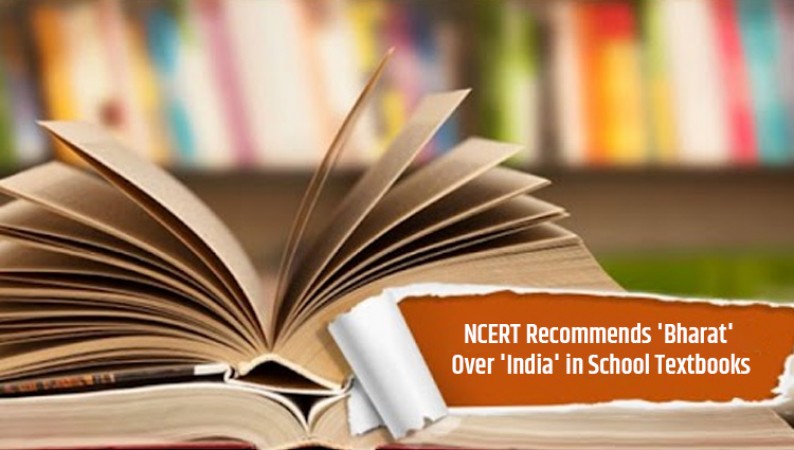
The NCERT advisory panel has proposed a noteworthy adjustment in school textbooks, suggesting the substitution of 'India' with 'Bharat.' CI Issac, the committee's chairperson, also revealed that this committee was one of the 25 groups established by the NCERT in 2021 to create position papers on various subjects and topics. In addition to this change, they've put forth a recommendation to replace 'ancient history' with 'classical history' within the educational curriculum.
A high-level committee in the field of social sciences, appointed by the National Council of Educational Research and Training (NCERT) to overhaul the school curriculum, has made these notable proposals. Chairperson CI Issac made this announcement on Wednesday, emphasizing the unanimous support from the seven-member committee. These recommendations feature prominently in the committee's final position paper on social sciences, a pivotal document guiding the development of new NCERT textbooks.
It's important to note that Article 1(1) of the Constitution already stipulates, "India, that is Bharat, shall be a Union of States."
The name 'Bharat' boasts a rich historical lineage. It can be traced back to ancient texts like the Vishnu Purana, which dates back to 7,000 years, as highlighted by Issac. He further clarified that the term 'India' gained common usage only after the advent of the East India Company and the pivotal Battle of Plassey in 1757. As a result, the committee has unanimously recommended the adoption of 'Bharat' as the term to be employed in textbooks across all educational levels.
The official use of 'Bharat' first surfaced when G20 invitations from the government were presented under the banner of 'President of Bharat,' rather than 'President of India.' This practice extended to the nameplate of Prime Minister Narendra Modi during the Summit in New Delhi.
In addition to these changes, Issac disclosed that the committee, formed in 2021 alongside 24 others to create position papers on various subjects, has also suggested the introduction of 'classical history' in place of 'ancient history' in school textbooks.
Furthermore, the committee emphasized the need to acknowledge and teach the classical period of Indian history, in addition to the medieval and modern periods. This shift aims to rectify a historical division created during British rule when Indian history was categorized into ancient, medieval, and modern phases, often portraying India as lacking in scientific knowledge and progress. Issac underscored the need to recognize India's historical achievements, such as Aryabhatta's work on the solar system model.
The committee has also recommended highlighting "Hindu victories" in the textbooks, aiming to rectify the current focus on failures without due attention to India's triumphs over Mughals and Sultans.
Lastly, the committee has proposed the incorporation of the Indian Knowledge System (IKS) across the curriculum of all subjects.
The NCERT's curriculum revision aligns with the National Education Policy (NEP) 2020. In light of this, the council has recently established a 19-member National Syllabus and Teaching Learning Material Committee (NSTC) to finalize the curriculum, textbooks, and learning materials for these educational classes.